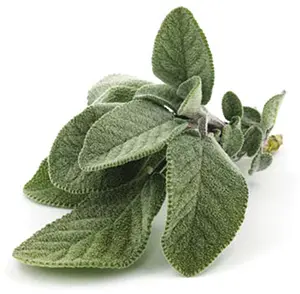
Exploring the Origins
Sage (Salvia officinalis), a perennial herb from the mint family, is distinguished by its aromatic, grayish-green leaves and blue to purplish flowers. Originating from the Mediterranean, sage is renowned for its culinary and medicinal applications.
Historical Significance and Lore
- Rooted in ancient Greek mythology with ties to Thebes’ founder, Cadmus.
- Used in the Middle Ages for various health conditions, including fevers and liver disease.
- Associated with folklore magic for foreseeing future partners.
Medicinal Benefits
- Effective in treating oral health issues like inflamed gums, laryngitis, and tonsillitis.
- Acts as a natural teeth cleaner and breath freshener.
- Used in hair care to combat head lice.
- Antiseptic properties make it ideal for wound care.
- Facial steam baths with sage offer astringent benefits for skin and relief for head colds.
Magical and Spiritual Uses
- Integral to smudging practices for energy cleansing.
- Utilized in rituals to purify individuals, objects, and spaces from negative influences.
Personal and Spiritual Enhancement
- Cleanses both body and mind, restoring balance and reducing stress.
- Sage incense is used for its calming effects and to combat mental fatigue and depression.
- Sage essential oil in aromatherapy stimulates the mind and alleviates emotional distress.
Discover the holistic benefits of Sage, a herb that transcends its culinary value, offering profound healing and spiritual purification.

Pingback: Clary Sage: Embracing Its Therapeutic and Spiritual Qualities - Earth Discover